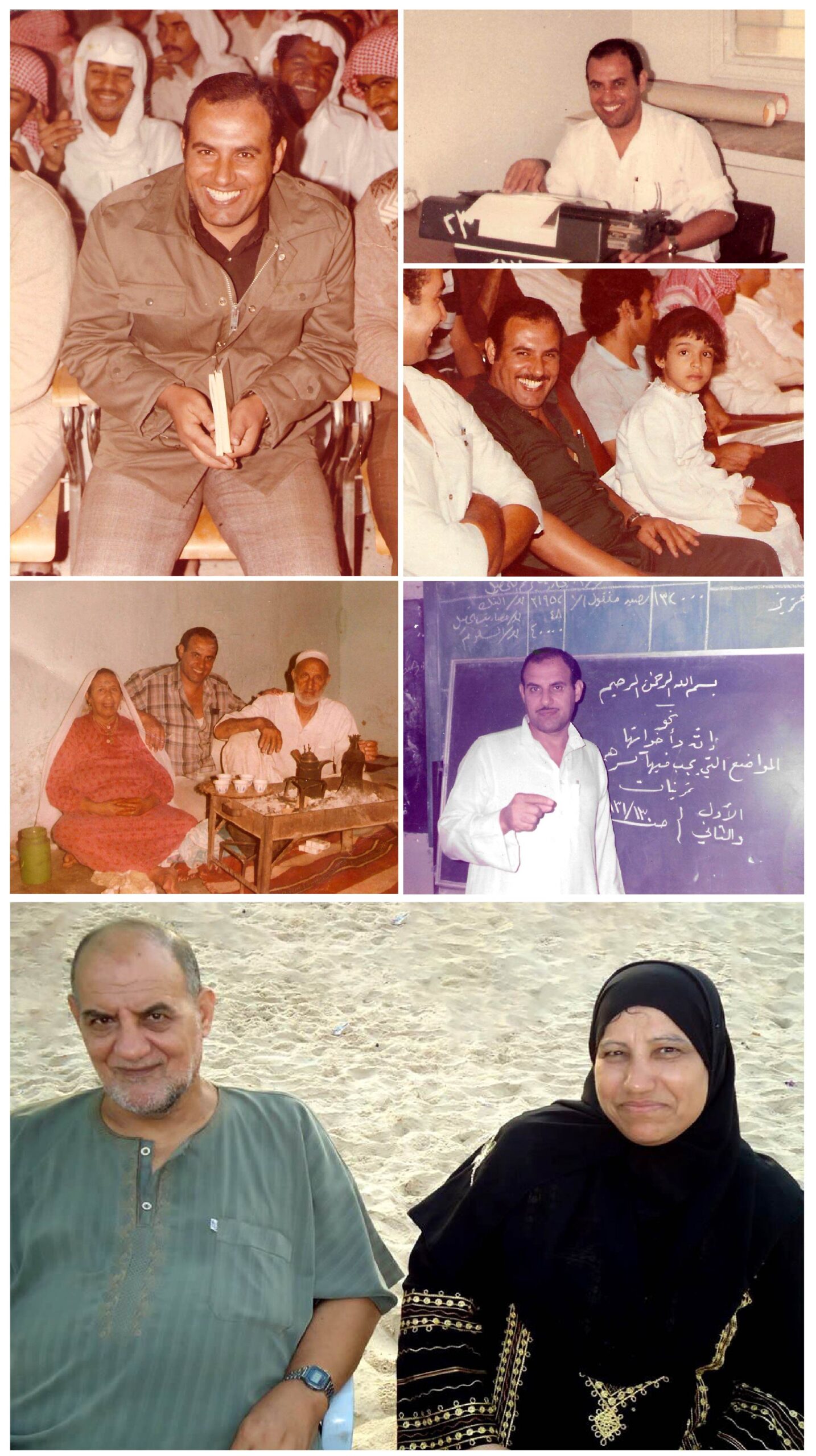In Loving Memory
Ibrahim Abdullah AbuAitah
1947 -2014
Born in 1947, Ibrahim AbuAitah was only one year old when his parents and two older siblings, along with over 600 more villagers, were forced out of their ancestral village Najd at gunpoint during Operation Barak through which the Negev Brigade occupied it. After their village was destroyed and the Israeli settlement Sderot was founded on its ruins, his parents fled to Gaza City, which is 8.7 miles away. As an internally displaced person, he lived his entire life as a refugee in his own country. He was educated in Gazan schools through high school, then obtained a permit to travel to Egypt to pursue a Bachelor's degree in Arabic Language and Islamic Studies at Ain Shams University in Cairo and graduated as one of the top students in his class.
Ibrahim’s dream was to return to Gaza and help educate the next generations of internally displaced refugees like himself so that they could transcend the limitations imposed on them. But his dream was shattered when the Israeli Occupation denied him permission to enter Gaza for many years. He was offered admission to the graduate school at Mansoura University to complete a graduate degree in comparative linguistics, but he couldn’t afford the opportunity and decided instead to take a teaching position he was offered in Libya, and he worked for five years in Libyan elementary and middle schools so that he could at least support his family in Gaza financially, as his father went blind after an Israeli soldier attacked him for defending a child who was throwing stones during the Israeli Occupation of Gaza. This unfortunate incident rendered his father, who worked as a tradesman after working in farming all his life, incapable of providing for the family, which grew to include nine more children.
After fighting for his right to visit his family in Gaza for years, Ibrahim was finally granted permission to visit them for two months before leaving for Saudi Arabia to take up an offer to teach Arabic and Islamic Studies to high school students.
During his teaching assignment in Saudi Arabia, the Oslo Accords were signed, and the Palestinian Authority emerged. Because he wasn't in Palestine at the time, Israel denied Ibrahim Palestinian citizenship for years. He lived in exile for 17 years and was only able to enter Gaza with very special permissions from the Israeli government that he obtained only twice with incredible difficulty. On one of those visits, he married his wife Jameela, and she went with him to Saudi Arabia to start a family together. Because she was in Gaza during the formation of the PA, Jameela had been issued a Palestinian ID, which meant she was allowed to enter Gaza to visit more often than Ibrahim. Jameela would travel from Saudi to Gaza whenever she could so that their children could form a connection with their homeland and so that their families could get to know their children. Jameela made sure to return to Gaza to give birth to their children there so that they could be granted Palestinian citizenship instead of being unrecognized refugees like their father. Ibrahim missed out on most of those precious moments, and his children grew up torn between Gaza and Saudi Arabia. This arrangement wasn't ideal, but it was all they could do to make sure their children would have a future in Palestine.
When Ibrahim's father was diagnosed with prostate cancer in 1997, Ibrahim decided to retire early and apply for a visitation permit to enter Gaza and spend time with his dad. He was granted the permit only a few months before he lost his dad to cancer. After his father's death, Ibrahim decided to move permanently to Gaza and fight for his right to be recognized as a Palestinian citizen. He kept filing petitions and appeals until he finally got his Palestinian ID in 2004. He was 57 years old at the time. He dedicated his remaining years to his children and grandchildren.
During the 2014 Israeli assault on Gaza, an Israeli airstrike targetting their neighbor's home in northern Gaza killed Ibrahim, his wife Jameela, their oldest two sons Mohammed and Ahmad, and their three-year-old grandson Adham, leaving behind orphaned children and grandchildren, widowed daughters-in-law, and a severely-wounded thirteen-year-old daughter Alaa, who survived with a miracle and decided to honor her father's legacy by studying to become a doctor in Egypt. She is almost finished with her medical training and plans to practice in Palestine to serve her community.
Ibrahim may not have fulfilled his dream of working as an educator in Palestine, but he did fulfill it through his children, who grew up with a strong passion for education, especially his daughters. His eldest daughter, Enas, followed in his footsteps and became an elementary school Arabic teacher; his youngest son, Ismail, an English teacher who dedicates his time to working with children orphaned by war to make sure they have strong educational foundations to build a future; and his daughter Iman dedicated many years of her life as an educator and to working on bettering educational opportunities for Palestinian youth around the world through LE.O.
In honor of Ibrahim’s journey, the AbuAitah Award focuses on providing opportunities to Gazan students who lost all sources of support in their lives. Its aim is to provide resources and foundations for success for ambitious students who no longer have a support network to push them forward. Our goal is to instill the idea that education is a gateway to a better future, where we pave the way for the next generation as they work on rebuilding their communities so that they can pave the way for the generation following them and honor those who are gone.

1. Ibrahim with students, Saudi Arabia, 1979. 2. Ibrahim in the staff room, Saudi Arabia, 1981. 3. Ibrahim with his eldest daughter Enas, Saudi Arabia, 1984. 4. Ibrahim with his parents Abdullah and Khadija, Gaza, 1990. 5. Ibrahim in the classroom, Saudi Arabia, 1996. 6. Ibrahim and his wife Jameelah, Gaza Beach, 2011.
